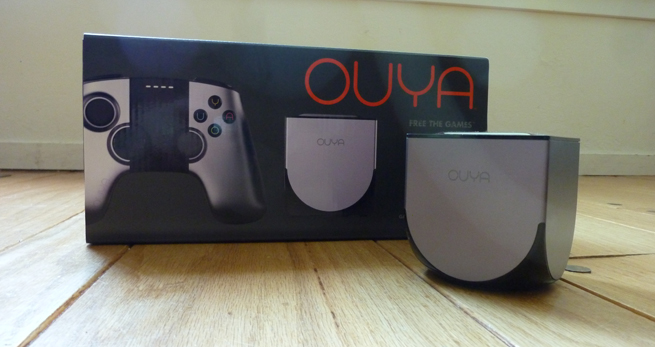Ed Fries is the former head of Microsoft Game Studios and was a member of the team that created the original Xbox. He is an adviser to a number of game companies, including Ouya.
Twelve years ago, an employee came into my office at Microsoft with an urgent problem — just as we were readying our launch titles for the first Xbox console.
 The issue? They had done a color analysis of “Halo” and concluded that the results were all wrong. The palette was too dark. It lacked the bright, eye-catching hues of hit games like Mario, Sonic, and Crash Bandicoot.
The issue? They had done a color analysis of “Halo” and concluded that the results were all wrong. The palette was too dark. It lacked the bright, eye-catching hues of hit games like Mario, Sonic, and Crash Bandicoot.
In hindsight, this may have been a ridiculous point. Back then, however, it was a fair argument. All the other consoles had iconic franchises that had a cartoony feel. Character-based games formed the foundations of consoles. At least, they did in 2001. If that was the measure of success, then Master Chief in his drab space suit was going to be a major disappointment.
But if the past is any guide, it’s that you can never predict where or when the next hit will emerge. And operating solely from today’s success metrics can blind you to tomorrow’s hits.
Ouya’s situation as the new platform on the block
This is essentially the same issue that now faces Ouya, the new free-to-play Android microconsole that launched in June. The platform is being judged by how well it stacks up against metrics from a previous era, one with an entirely different business model. Among the criticisms is that “only” one out of three Ouya owners have purchased at least one game. While the folks at Ouya are incredibly proud of this early outcome, some have chosen to interpret this as a glass that’s two-thirds empty.
But is it? To understand why that might not be, we need to examine a sea change happening in our industry – one that’s sweeping though the distribution of all content, including games. I believe this change will upend traditional publishing models in ways that we have yet to fully appreciate because the transformation is only just beginning.
Distribution used to be entirely controlled by a handful of gatekeepers. In news media, the gatekeepers were the big newspapers, radio stations, and TV broadcasters. In music, record labels called the shots. With games, console manufacturers and big publishers decided which titles got the endcaps at Wal-Mart and Gamestop.

While these institutions continue to play important roles, the balance of power has permanently shifted towards more open distribution models with fewer gatekeepers. The ascendancy of YouTube, iTunes, and SoundCloud are examples of what can happen when barriers to publishing are removed – the art flourishes in unexpected ways.
The same is true of games. Independent developers can still turn to a major publisher to produce a triple-A title. But that rarely happens – not just because publishers are unlikely to take a risk on an unproven franchise, but also because developers now have plenty of other avenues to publish their games. Apple’s App Store, Google Play, Amazon, Steam and Ouya, to name a few.
Ouya is an open console, created in collaboration with players, that will be able to evolve as needed. It has growing support from a number of creative indie developers. And it is riding on the coattails of a huge mobile ecosystem that has economic advantages over the other game companies.
In the interest of full disclosure, I am an adviser to Ouya. I believe in its mission — to build a completely open game console with very little funding and low overhead while giving developers access to the same large, high-definition television screen that glossy high-end consoles do. It turned out I wasn’t the only one who felt this way. Ouya, which had initially hoped to raise $1 million from 10,000 or so gamers and developers, ultimately raised $8.6 million in a Kickstarter campaign from more than 63,000 people, including myself. Ouya shipped its console less than a year later, breaking another barrier of the traditional console model that dictated a multiyear manufacturing cycle backed up by a marketing budget of hundreds of millions of dollars.
Today, Ouya has over 382 games, most of which are brand-new titles from indie developers like Matt Thorson, whose TowerFall continues to generate solid sales. Many of Ouya’s top titles are original IP. Still, headlines declare that Ouya “has no hit games.” Somehow, I doubt Matt sees his title as a flop.
We need new metrics
But the point is well taken. Compared to how well Grand Theft Auto V will do on the PlayStation 3, there’s no contest. Just as there was no way to compare Minecraft with World of Warcraft three years ago, today it is nearly impossible to compare Ouya with the next-generation consoles set to debut this year. This is because the game has changed dramatically for the interactive entertainment industry — and so have the rules.
What does success look like? I can honestly say I don’t know. When I was at Microsoft, some thought it laughable that we only had Ethernet for the original Xbox instead of a modem. Few people had broadband connections in 2001, and those who did weren’t about to use it to play games online via their consoles. Weren’t we limiting our audience by insisting on high-speed connections for multiplayer gaming?
Possibly. But that didn’t matter, because it turned out that the world was moving in that direction. Consoles were about to be connected, and we wanted to be there early enough to explore and define the space. Now there are more than 50 million Xbox Live members.
I would argue that we are at a similar cusp in the evolution of gaming, one that will unleash a huge amount of creativity both on the business side and in the art form. It’s characterized by an open platform with few if any gatekeepers, populated by developers small and large who aren’t afraid of giving away portions of their games because they’re confident players who value the title will pay to get more. Where will we end up? I’m not certain, but I do know I want to be along for the ride.
VentureBeat's mission is to be a digital town square for technical decision-makers to gain knowledge about transformative enterprise technology and transact. Learn More


